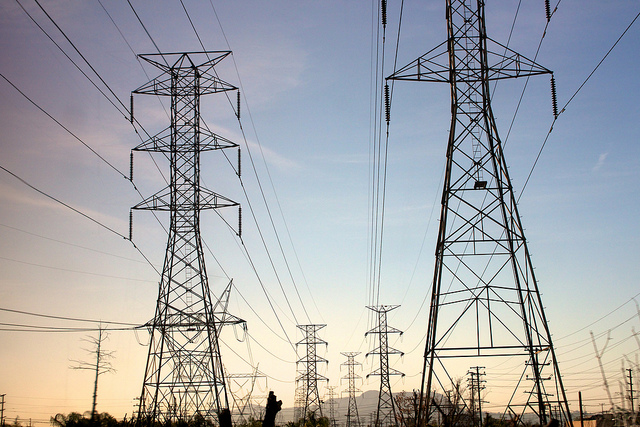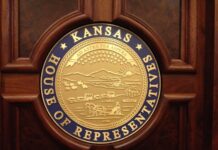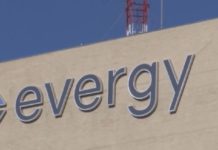State regulators are recommending an electric rate increase for Evergy that’s about $169 million less than what the utility first proposed for its central Kansas customers in addition to a rate cut for the Kansas City area.
After auditing the company’s balance sheet, staff for the Kansas Corporation Commission concluded that an increase of $34.7 million was warranted for central Kansas, compared to the roughly $204 million that the utility first proposed.
The KCC determined that an increase of 1.66% was all that could be justified for the company’s 736,000 central Kansas customers, which includes Topeka, Pittsburg, Wichita, Hutchinson and other communities in the eastern third of the state.
The company had sought a 9.77% increase, or $204 million, for central Kansas.
Meanwhile, the staff recommended a rate cut for Evergy in the Kansas City metro area totaling about $54.2 million after the company first sought a rate hike.
The company first requested a 1.95% rate increase, or about $14 million, for its Kansas City area customers.
At one point, there was an effort made during the proceedings to get the KCC to dismiss the proposed rate increase for Kansas City altogether after the utility revealed its intentions not to seek the recovery of lost revenues during the COVID-19 pandemic.
“We are still reviewing thousands of pages of testimony filed by many parties,” the company said in a statement late Tuesday.
“While we do not agree with aspects of the testimony, we stand by the investments in reliability and customer service we have made and we are pleased by the merger-enabled efficiency gains that we are able to share with customers,” the company said.
“We will continue to work with parties to advance this case. Our rates have been essentially flat over the past five years and even with the proposed increase will remain well under inflation during that time period,” the company said.
The deadline for intervenors filing testimony in the case was Tuesday.
The next steps include cross answering testimony, rebuttal testimony from Evergy and potentially a settlement conference to determine if the parties can agree on a resolution to submit for commission approval.
The KCC will issue a final order in late December or early January.
The proposed rate increase filed with the Kansas Corporation Commission is the first one since 2018, when Kansas City Power & Light merged with Westar.
The proposal has been watched closely in political and economic development circles where Evergy’s critics have pushed legislative measures to reduce electric rates.
The Kansas Chamber of Commerce is among the groups that have intervened in the case in an effort to keep electric rates down.
Other parties joining the case with concerns about electric rates included the Blue Valley, Shawnee Mission, Olathe and Wichita school districts.
The chamber was joined by the Kansas Industrial Consumers Group, a coalition of big power users that includes heavyweights such as Cargill, Spirit AeroSystems and Goodyear.
“It is apparent that staff has analyzed in extraordinary detail, every aspect of the Evergy’s application,” said Jim Zakoura, who leads the group and represents it before the KCC.
“No intervenor has the resources or the range of professional expertise comparable to the KCC Staff, and that is why the staff’s independent, comprehensive, and detailed review of the facts and issues in this case is so important,” Zakoura said.
Kansas has had among the highest electric rates among seven midwestern states in recent years according to the federal Energy Information Administration.
In June, Kansas ranked fourth in rates per kilowatt hour at 13.54 cents for residential customers. The leader was Minnesota at 15.5 cents followed by Iowa (15 cents) and Missouri (14.28 cents).
Also in June, Kansas ranked fourth in rates per kilowatt hour at 11.1 cents per hour for commercial users. The leader was Minnesota at 13.4 cents per hour, followed by Iowa at 12.35 cents and Missouri at 11.34.
Earlier this year, Justin Grady, of the Kansas Corporation Commission’s utilities division, briefed lawmakers on federal data showing that average Kansas electric rates declined 0.19% from 2016 to 2021.
Kansas was only one of two states in the Midwest that saw a decline in average electric rates during the six-year period for which data was collected from the Energy Information Administration.
The only other state with a decline was North Dakota, which saw average rates fall 3.24%, according to the report Grady made to the utilities committee.
Kansas was compared to nine other states, including North Dakota, Colorado, Missouri, Oklahoma, Arkansas, Iowa, Minnesota, South Dakota and Texas.
The highest average increases were reported in Arkansas (11.9%), Minnesota (10.91%), Colorado (10.89%) and Oklahoma (8.8%).
Average residential rates in Kansas increased about 1% from 2020 to 2021, which was the lowest among the nine other peer states to which it was compared.
The highest average residential increases were in Oklahoma (8.7%), Arkansas (8.2%) and Colorado (5.76%).
Just this year, the Legislature passed a bill that took steps toward lowering electric rates and settles a dispute over a fee that Evergy levies to recover the cost of constructing electric transmission lines.
The compromise legislation gives the state more oversight over how Evergy recoups expenses from a transmission delivery charge that’s imposed on consumers when it undertakes new local transmission projects.
At the same time, the deal lowered the amount of return on equity the utility can get from building new local transmission lines, which will save ratepayers almost $11 million upfront and $2 million a year in the future.















